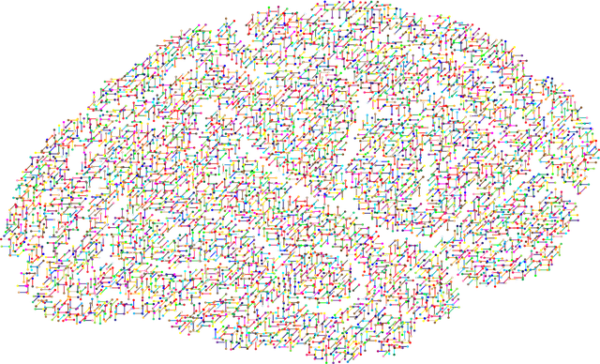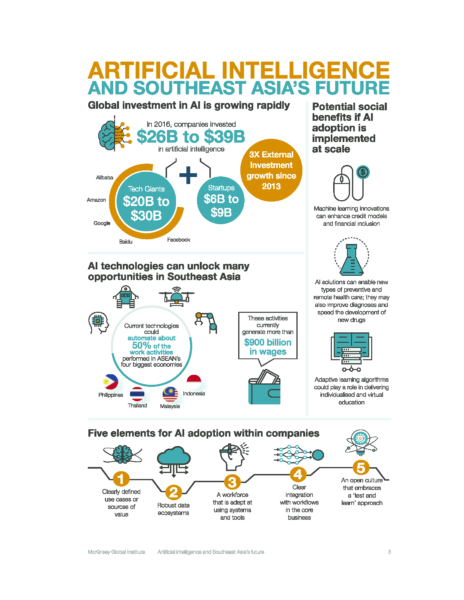
Singapore is among many countries embarking on AI projects for digital transformation and to drive many Smart Nation initiatives in robotics, machine learning, data analytics and other related sciences.
The National Research Foundation has promised S$150 million over five years primarily to grow the knowledge, create the tools and develop the talent to power Singapore’s AI efforts.
A national programme called AI.SG will drive this initiative to help industry use the technology. The Agency for Science, Technology and Research (A*Star) is devoting hundreds of scientists on AI-related projects. Industry observers say that there are more than 50 AI startups based here.
While Singapore has made great advances in AI, it is not recognised as a top AI hub yet, according to a recent report from McKinsey Global Institute.
The report called Artificial Intelligence: The Next Digital Frontier concluded that the United States and China dominate the AI landscape with the most vibrant AI hubs being Silicon Valley, New York, Beijing, Boston, London and Shenzhen.
Asean may lag behind but Singapore is the front runner because of the strong support given to AI by the government, said Sachin Chitturu, one of the report’s authors.
However Singapore lacks scale of data because it has only over 5 million people. Many Singapore businesses aspire to do well regionally. But the business insights they local transactions will not mean much when they go overseas.
Chitturu explained: “The more data there is, the better the AI systems can discern trends that would lead to better business insights. A local telco for example, with three million customers can’t compare with a telco in Indonesia with 20 million customers. The Indonesian telco will have a richer data set, giving detailed business insights.”
Hence he suggested that Singapore could partner with neighbouring organisations which individually may not have the technical AI capability. But they can leverage on Singapore’s technical capability.
It would be a win-win situation. Better AI projects can be built and more talent can be developed for Asean, said Chitturu.
Another argument for Singapore’s potential to be an Asean AI hub is that global brands are attracted to do business in the nation state because of its good business framework and digital infrastructure coupled with a tech savvy workforce.
Many of these companies with Asean operations in sectors like retail and e-commerce, want to create data hubs in Singapore. They may also want to embark on AI projects by leveraging on Singapore’s digital infrastructure and technical capability.
“The important thing is for Singapore to understand how to implement the AI projects in partnership with the global brands so that going forward, it can be an Asean hub for AI,” said Chitturu.
If Chitturu’s suggestions out in the next few years, it would be Singapore’s second “outing” in AI. More than 30 years ago, Singapore was internationally recognised for its smart applications.
In 1989, the Port of Singapore Authority built an expert system that provided automated assistance in the planning of the discharging and loading operations of container ships.
Called the Ship Planning System, it was developed by PSA and the now defunct Information Technology Institute (ITI), the R&D arm of the National Computer Board.
In 1993, The Straits Times introduced an expert system to put together advertisements in its Appointments and Notices section. What took several hours of manual tedious work was done in just 30 minutes, improving customer service tremendously.
Called Alexis (Auto-Layout Expert with Interactive Support System), it was built by ITI and the newspaper’s parent company, Singapore Press Holdings.
These and other AI projects won the Innovative Application Award from the American Association for Artificial Intelligence. Had Singapore leveraged on this experience, it could have been a leading centre for AI alongside other places like Silicon Valley and London.
Singapore has been given a second chance in AI. Perhaps in the next few years, there maybe another report that recognises Singapore as a leading AI centre.







